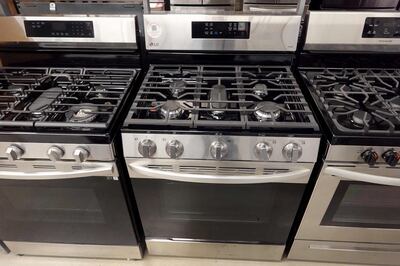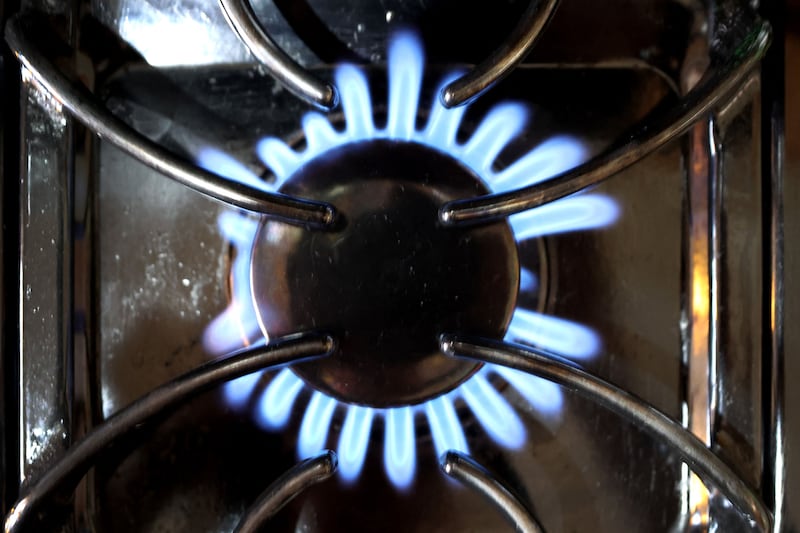People are typically aware of the pollution they breathe outdoors each time they are near a road but probably fewer consider the harmful substances given off in the home.
There are myriad indoor pollutants that may damage health and recently the focus has been on the role that gas cookers or stoves play in generating some of them.
This month the US Consumer Product Safety Commission discussed restricting the sale of new gas stoves, although there has been vocal opposition to any suggestion of a ban.
Concerns about gas cookers are being expressed because more scientific research is indicating that they may harm health, such as a study released last month that suggested they cause 13 per cent of US childhood asthma cases. Researchers in Europe have also recently said using gas stoves without good ventilation can increase the chances of health problems in children.
Another study, published last year by scientists at Stanford University in the US, indicated that proportion of nitrogen dioxide in the kitchen could exceed recommended levels after only a few minutes of stove use without good ventilation.
Prof Rob Jackson, of Stanford University’s Stanford Doerr School of Sustainability, who co-authored the study, said: "Our work clearly shows that gas stoves cause indoor air pollutants to reach dangerous levels that can harm our health. Not always, but sometimes, and often enough to concern me."
Nitrogen dioxide can increase a person’s risk of asthma and respiratory tract infection, and lead to chronic lung disease.
In some cases, exposure to nitrogen oxide from a gas stove may exceed that from living near a busy road, Prof Jackson said, although there are other pollutants to consider, too.
"But cars emit more than nitrogen oxides, including particulates, at rates far higher than stoves do," he said. "If forced to choose, I’d still avoid living near a busy road first. Put differently, pollution from cars kills more people than pollution from gas stoves."
Greenhouse gases in the home

He and his colleagues have found that gas stoves also release significant amounts of unburnt methane, a potent greenhouse gas, through leaks or incomplete combustion.
They estimate methane from the more than 40 million gas stoves in the US has as much effect on global warming as the carbon dioxide emissions of 500,000 cars.
Gas stoves have also been blamed for the release of benzene, a carcinogenic organic compound.
Dr Eric Lebel, who worked with Prof Jackson at Stanford and is now based at a US research and policy institute, Physicians, Scientists and Engineers for Healthy Energy (PSE), said benzene was present in nearly every sample of unburnt natural gas he and his colleagues had tested in California and Boston.
This is concerning because, he said, stoves could leak gas when off, when on, and when they are being turned on or off, although there are other potential sources of benzene in the home, such as paint.
"From our modelling of stoves while off, we found that benzene concentrations in homes with the highest emitting stoves, the highest concentrations of benzene in the gas, and the smallest kitchens with poorest ventilation could be similar to concentrations of benzene living with a smoker," he said.
"Since benzene is a known carcinogen, any additional exposure of benzene can increase your risk of developing cancer."
Additional research is needed, he said, to quantify benzene emissions from stoves while they are in use.
The gas industry has rejected suggestions that such stoves create health risks. The American Gas Association (AGA) said the US study that indicated a link to childhood asthma was "based on data that are either not validated or do not accurately reflect risks associated with gas cooking".
"The results are equally unvalidated and have the same concerns with inaccuracy and unreliability," the organisation said in an online statement.
"Inexplicably, the authors ignored their own search of peer-reviewed manuscripts since 2013, where they found ‘none reported new associations between gas stove use and childhood asthma specifically in North America or Europe’."
Should I get a new stove?
Nevertheless, the measurements taken by Prof Jackson (who was not connected to the research the AGA criticised) and his colleagues were enough to convince him that his gas stove had to go.
"I just replaced my gas stove with an induction stove because of the nitrogen oxides and other indoor air pollutants we measured at my house and in other homes," he said.
Whether others should replace theirs could depend, he said, on a person’s ability to afford to do so, whether they own or rent their home and appliances, and the appliance’s age.
"Lower-income households may need help to afford a safer electric alternative," he said.
Those who have a gas cooker can take several steps to improve ventilation and reduce their possible exposure to pollution.
Regardless of what they are cooking, gas stove owners should "absolutely" turn on vents each time they use their stove, according to Dr Lebel.
"If they don’t have a vent, or if the vent blows the air back into the kitchen, the next best thing to do is to open a nearby window and perhaps put a fan in the window," he said.
"Increasing the ventilation will help to reduce some of the concentrations of pollutants that can build up while using the stove.
"Additionally, using alternative electric appliances to reduce combustion can be a good idea, such as a crock pot, electric tea kettle, or countertop induction unit."
Some experts have also advised using air purifiers, suggesting that these can be kept near the kitchen during the day and moved the bedroom at night.






